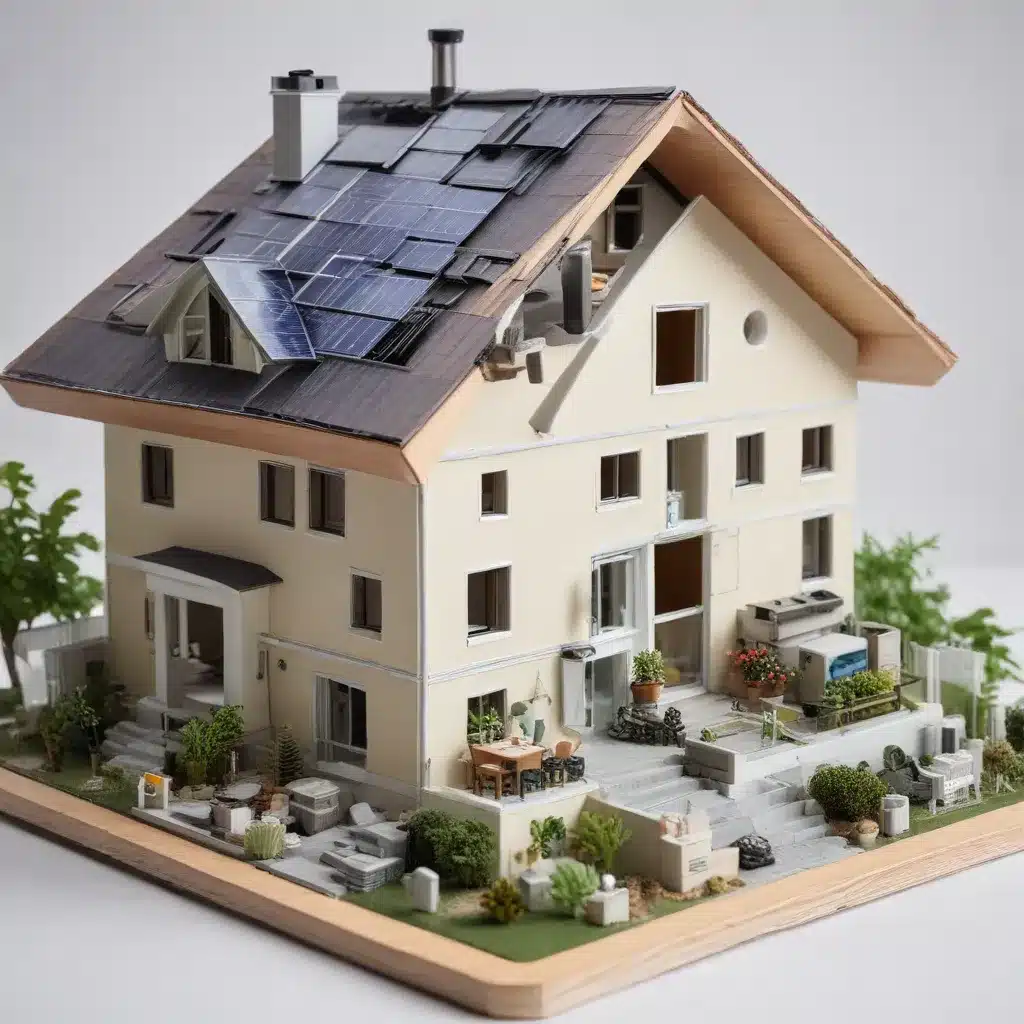
Unlocking the Power of Smart Home Technology for Energy-Efficient Living
In today’s era of rising utility costs and growing environmental concerns, intelligent home energy management has become a crucial aspect of sustainable and cost-effective household operations. As an experienced IT professional, I’m here to guide you through the strategies and technologies that can help you take control of your home’s energy usage and expenses.
Understanding Your Home’s Energy Consumption
The first step in intelligent home energy budgeting is to gain a comprehensive understanding of your household’s energy consumption patterns. Begin by closely examining your utility bills to identify areas where you can make improvements. The national average electricity consumption is approximately 1,000 kWh per month, but if your usage exceeds this benchmark, there may be significant opportunities for savings.
Next, consider conducting a home energy assessment or audit. Many utility companies offer these services, which can provide valuable insights into the energy efficiency of your home’s insulation, appliances, lighting, and other systems. Armed with this information, you can prioritize upgrades and implement targeted energy-saving measures.
Leveraging Smart Home Technology
One of the most powerful tools in intelligent home energy budgeting is the integration of smart home technology. Smart meters and home energy management systems allow you to monitor and control your energy usage in real-time, enabling you to make informed decisions about when and how you consume power.
Smart Appliances and Automation
Investing in smart appliances that can communicate with your home’s energy management system can yield significant savings. These advanced appliances can be programmed to operate during off-peak hours when electricity rates are lower, or even automatically adjust their energy consumption based on your household’s needs and preferences.
Furthermore, home automation systems can integrate with smart appliances, lighting, and HVAC controls to optimize energy usage throughout your home. By automating tasks like turning off lights or adjusting the thermostat when not in use, you can effortlessly reduce your energy consumption and lower your utility bills.
Renewable Energy Integration
Incorporating renewable energy sources, such as solar panels or small wind turbines, into your home’s energy mix can significantly impact your overall energy costs and carbon footprint. When paired with energy-efficient appliances and a smart home management system, renewable energy can help you achieve net-zero or even net-positive energy consumption, where your home generates more energy than it consumes.
Identifying and Addressing Energy Inefficiencies
In addition to leveraging smart home technology, it’s crucial to identify and address any energy inefficiencies within your home. This may involve:
Improving Insulation and Weatherization
Ensuring your home is well-insulated and properly sealed can dramatically improve its energy efficiency, reducing the strain on your heating and cooling systems. Sealing air leaks, upgrading insulation, and installing energy-efficient windows and doors can have a significant impact on your energy usage and costs.
Upgrading Appliances and Lighting
Replacing older, energy-intensive appliances and inefficient lighting with ENERGY STAR-certified models can yield substantial savings. These modern, energy-efficient alternatives not only consume less power but also often offer enhanced functionality and longer lifespans.
Optimizing HVAC Systems
Your home’s heating, ventilation, and air conditioning (HVAC) system is a significant contributor to energy consumption. Regularly maintaining and properly sizing your HVAC system can ensure it operates at peak efficiency, reducing energy waste and keeping your home comfortable.
Behavioral Changes for Energy Conservation
While technological solutions play a vital role in intelligent home energy budgeting, behavioral changes within your household can also have a significant impact. Encouraging family members to adopt energy-conscious habits, such as turning off lights and electronics when not in use, can lead to substantial savings over time.
Additionally, time-of-use electricity rates offer incentives for shifting energy-intensive tasks like laundry or dishwashing to off-peak hours. By taking advantage of these programs and managing your household’s energy consumption accordingly, you can further optimize your energy budget.
Tracking and Monitoring Energy Usage
Continuous monitoring and tracking of your home’s energy usage is essential for maintaining an intelligent and cost-effective energy budget. Leveraging the data provided by smart home technologies, you can identify patterns, analyze trends, and make informed decisions about future energy-saving initiatives.
Many utility companies now offer online portals or mobile apps that allow you to track your energy consumption in real-time, providing valuable insights and enabling you to adjust your usage accordingly.
Embracing a Sustainable Mindset
Ultimately, intelligent home energy budgeting is not just about saving money – it’s about adopting a sustainable mindset and reducing your environmental impact. By implementing these strategies and technologies, you can not only lower your household expenses but also contribute to a more sustainable future.
As an experienced IT professional, I encourage you to explore the https://itfix.org.uk/ website for additional resources and expert guidance on optimizing your home’s energy efficiency and overall sustainability.
Remember, small steps taken today can lead to significant savings and a more eco-friendly lifestyle in the long run. Embrace the power of intelligent home energy budgeting and take control of your household’s energy future.
Key Takeaways
- Understand your home’s energy consumption patterns by examining utility bills and conducting energy assessments.
- Leverage smart home technology, such as smart appliances, automation systems, and renewable energy integration, to optimize energy usage.
- Address energy inefficiencies through improved insulation, appliance upgrades, and HVAC system optimization.
- Adopt energy-conscious behavioral changes and take advantage of time-of-use electricity rates.
- Continuously monitor and track your home’s energy usage to identify optimization opportunities.
- Embrace a sustainable mindset and contribute to a greener future through intelligent home energy budgeting.












